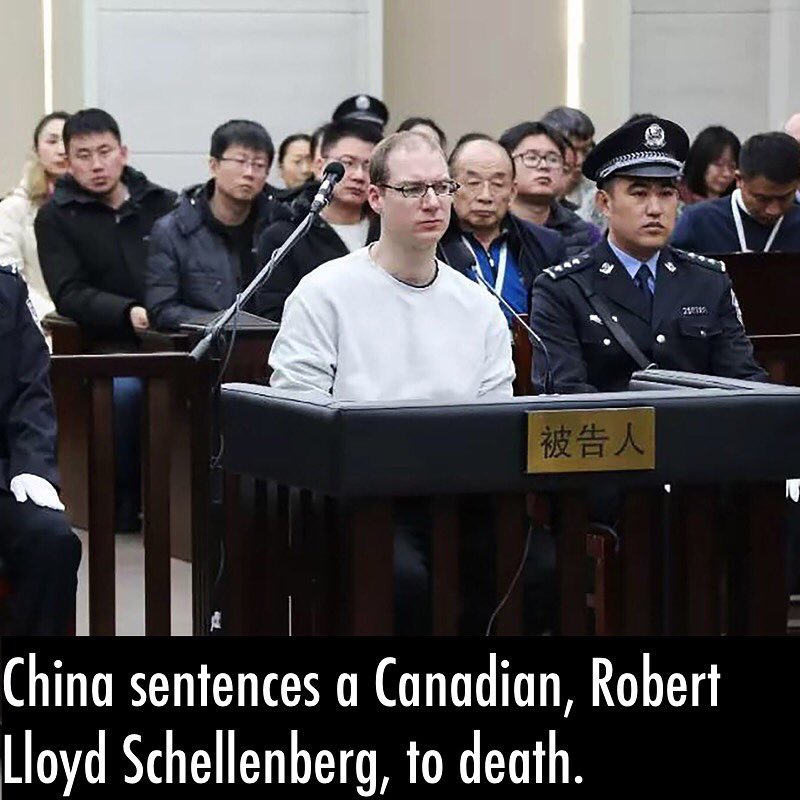Canadian loses appeal against death penalty in China. Schellenberg was initially sentenced to 15 years in jail, but in 2019 an appeal court said this was too lenient, leading to a retrial and a death sentence. The verdict comes as relations between Canada and China remain fraught.
The court said it upheld Robert Lloyd Schellenberg’s sentence because evidence against him was “sufficient”. A Canadian citizen has lost his appeal against a death sentence in China for drug smuggling.
The Canadian ambassador to China, Dominic Barton, condemned the Chinese court’s ruling, saying it was “no coincidence” that the verdict was released while an extradition battle involving senior Huawei executive Meng Wanzhou was ongoing in Canada.
Ms Meng, the daughter of the founder of the Chinese telecoms company, is currently detained in Canada on a US warrant. Canada had earlier accused China of conducting “hostage diplomacy”, though Beijing denies the cases are linked.
Verdict to come for Spavor
Schellenberg was detained in 2014 and charged with planning to smuggle almost 500lb (227kg) of methamphetamine from China to Australia.
He denies the charges, and said he went to China as a tourist. In November 2018, he was sentenced to 15 years in jail. But a few days later, Canada detained Meng Wanzhou, a senior executive at Chinese tech giant Huawei, on a US extradition warrant.
China at the time warned of unspecified consequences unless Ms Meng was released.
Schellenberg later appealed against the 15-year prison term, but instead of reducing his sentence, judges ruled that his previous sentence had been too light and instead sentenced him to death.
At his hearing, the judges said that evidence proved he was more seriously involved in international drug smuggling.
At the time, Zhang Dongshuo, Schellenberg’s lawyer, told Reuters that the sentence should not have been increased because no new evidence was presented at the trial. Another high-profile case involving a Canadian citizen is expected to be handed down by a Chinese court later this week.
Michael Spavor, a businessman accused of espionage, was arrested in China two years ago along with fellow Canadian and former diplomat Michael Kovrig. Their detentions came days after Canada detained Ms Meng. In March, the trial of Mr Spavor, lasting just two hours in the northern Chinese city of Dandong, ended with no verdict.
Canadian diplomats including the charge d’affaires to China were denied entry to the court. At the time, Canada’s Prime Minister Justin Trudeau called the closed-door proceedings “completely unacceptable”.
Source – BBC News

Are you looking for a new job?
Are you unemployed and want a new job? Or maybe you have a job already and want to find greener pastures? We have all these amazing Job Listings just for you. Take a look and find that amazing Job Today. – See All Listings










